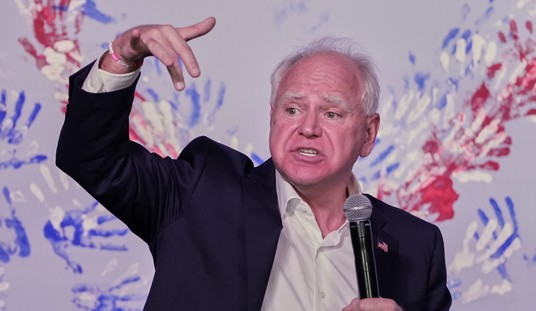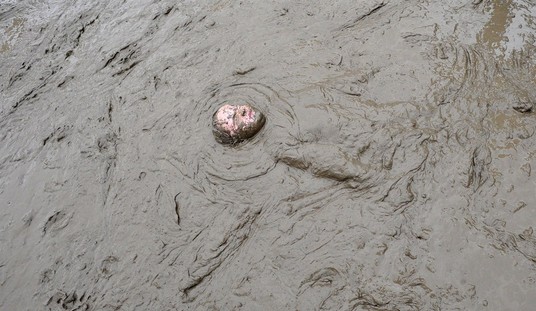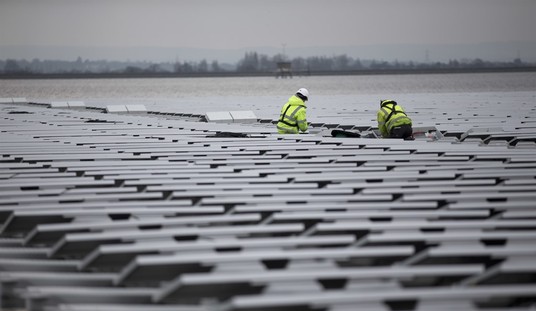=========
=========
Promoted from the diaries by streiff. Promotion does not imply endorsement.
=========
=========
We all remember the story of George Papadopoulos, who served briefly as a low-level foreign policy advisor to the Trump campaign. He is famous for boasting to Australian diplomat Alexander Downer, after several drinks in a London bar in May 2016, that Russia had “dirt” on Hillary Clinton. His level of intoxication varies depending upon which publication one reads.
Background Information
Papadopoulos was tapped as an advisor to the Trump campaign in early March 2016. In late March, he first met London-based Professor Joseph Mifsud, while traveling in Italy. In late April, he again met with Mifsud, who had just returned from a trip to Russia. He told Papadopoulos that the Russians had political “dirt” on Hillary Clinton. Two months after he shared this information with Downer, the FBI was notified of this incident.
“Following the WikiLeaks release of the hacked Democratic National Committee emails, the FBI launched Crossfire Hurricane on July 31, 2016, to investigate any collusion between the Trump campaign and Russia.” The next day, FBI agent Peter Strzok flew to London with another agent and returned with a treasure trove of documents.
In October 2016, the FBI applied to the FISA court for a warrant to surveil a second low-level foreign policy advisor to the Trump campaign, Carter Page, which was granted and renewed three times.
Papadopoulos first interviewed by the FBI in January 2017, at which time he made two false statements. He was arrested in July 2017 and in October 2017, he pled guilty to providing false statements and is scheduled for sentencing next month. Accordingly, the Mueller team has filed a sentencing memorandum in the case recommending that Papadopoulos receive a sentence of 0 – 6 months.
Papadopoulos’ Two False Statements
Papadopoulos told agents that Mifsud said “the Russians had “dirt” on then-candidate Clinton in the form of “thousands of emails.””
He then lied and said, “I wasn’t even on the Trump team” when Mifsud told him about the “dirt.” But he had joined the campaign in March and heard about the “dirt” in April.
Papadopoulos also told the FBI that Mifsud was “a nothing,” and that he thought Mifsud was “just a guy talk[ing] up connections or something,” while in fact, Papadopoulos thought Mifsud had high-level Russian connections. These two lies would eventually form the basis of the criminal charges Mueller filed against Papadopoulos and for which he now awaits sentencing.
Approximately two weeks later, the FBI interviewed Mifsud when, as the special counsel put it, “the FBI located him in Washington, D.C.” That shouldn’t have proven too difficult, given that Mifsud had flown to the United States to present at a conference sponsored by the State Department! Yet the FBI did not detain or arrest Mifsud, and the special counsel’s filing from last week represents the first public acknowledgment of the FBI’s February 2017 interview of Mifsud.
But in acknowledging that the FBI had interviewed Mifsud and released him, in the sentencing memorandum the special counsel implies that it was Papadopoulos’ lies that allowed Mifsud to leave the U.S. unscathed:
Excerpt from the Sentencing Memorandum
The defendant’s lies to the FBI in January 2017 impeded the FBI’s investigation into Russian interference in the 2016 presidential election. Most immediately, those statements substantially hindered investigators’ ability to effectively question the Professor when the FBI located him in Washington, D.C. approximately two weeks after the defendant’s January 27, 2017 interview. The defendant’s lies undermined investigators’ ability to challenge the Professor or potentially detain or arrest him while he was still in the United States. The government understands that the Professor left the United States on February 11, 2017 and he has not returned to the United States since then. The defendant’s lies also hindered the government’s ability to discover who else may have known or been told about the Russians possessing ‘dirt’ on Clinton.
Had the defendant told the FBI the truth when he was interviewed in January 2017, the FBI could have quickly taken numerous investigative steps to help determine, for example, how and where the Professor obtained the information, why the Professor provided the information to the defendant, and what the defendant did with the information after receiving it.
A Short Summary of Margot Cleveland’s Analysis
Margot Cleveland, a lawyer who also writes for The Federalist, reviewed the Mueller team’s ten-page memorandum and discovered several serious flaws in the FBI’s case against Papadopoulos. This type of error demonstrates that the Mueller investigator who prepared the case is either lying or incompetent – or both.
The FBI falsely claims that if they knew Papadopoulos was lying to them, they would have done things differently. For example, they may have detained or arrested Professor Mifsud when he was in the US in February 2017.
However, Cleveland has determined that they had all this information because some of it was required to complete the FISA Court application and a simple google search could have provided the rest.
Therefore, investigators either knew Papadopoulos was not being truthful (in which case, they are lying) or they should have known he was lying (in which case, they are incompetent because they didn’t bother to check their own records.) They either had all of this information on file or it was easily available at the click of a mouse.
Further, how often does an FBI agent simply take the word of and base case decisions on the answers of an individual they suspect has been involved in a crime? That doesn’t make sense.
Margot Cleveland’s Full Analysis
When Papadopoulos told FBI agents that he was not working for the Trump campaign when he met with Mifsud, the FBI would have had to know he was lying, as demonstrated by the FISA application submitted in October 2016.
According to Rep. Adam Schiff’s memo, in the FISA application the DOJ informed the “court that the FBI initiated its counterintelligence investigation on July 31, 2016, after receiving information” concerning Papadopoulos. While Schiff’s memo redacted what Papadopoulos revealed, it expressly stated that the “individuals linked to Russia” informed Papadopoulos in late April 2016 of those details and that they “took interest in Papadopoulos as a Trump campaign foreign policy adviser.”
Also, as the government stated in its court filings, the Trump campaign publicly named Papadopoulos a foreign policy advisor on March 21, 2016. Under these circumstances, Papadopoulos’ first misstatement — that he was not yet working with the Trump campaign — could not possibly have “substantially hindered investigators’ ability to effectively question Mifsud.”
Similarly, Papadopoulos’ efforts to downplay Mifsud as “a nobody” during the January 2017 interview shouldn’t have affected the FBI’s questioning of Mifsud. Again, the FISA application filed in October 2016 shows that the FBI knew that Mifsud was “linked to Russia.”
A simple Google search would have shown the level of connections Mifsud had, such as a July 2016 Russian Embassy photograph and caption stating that Mifsud had spoken with Russian counsellor Ernest Chernukhin about “Russian-British cooperation in the sphere of higher education.” A 2014 press release from the Russian Embassy in London announced that Russian Ambassador Alexander Yakovenko had received Mifsud at the embassy, noting that Mifsud had spoken the previous month at the Global University Summit in Moscow. Mother Jones dug up even more connections between Mifsud and Russia.
Of course, it now appears that Mifsud had equal, if not greater, connections to Western intelligence organizations, but the FBI should have known of all these facts by the time it interviewed Mifsud in February 2017. After all, the FBI justified launching a criminal investigation into the Republican presidential candidate’s campaign in July 2016 because of the supposed troubling revelation that a Russia agent had told Papadopoulos the Russians had dirt on Hillary.
Also, as noted above, immediately upon launching operation Crossfire Hurricane, the FBI sent Strzok and another trusted agent to London, where they interviewed several individuals. The investigation also spurred the Department of Justice to seek a FISA warrant on Page in October 2016.
Under these circumstances, it is sheer nonsense for Mueller to claim that if Papadopoulos had admitted he worked for Trump when Mifsud revealed the Russians had dirt on Clinton, and acknowledged Mifsud had high-level Russian connections, “the FBI could have quickly taken numerous investigative steps to help determine, for example, how and where the Professor obtained the information, why the Professor provided the information to the defendant, and what the defendant did with the information after receiving it.”
The FBI knew these facts since October, if not earlier. Did the FBI not quickly take those investigative steps then? If the FBI had been so concerned about “quickly” investigating what Papadopoulos did with the information after receiving it, why did the FBI wait nearly six months to question Papadopoulos?
Further, nothing Papadopoulos said “undermined investigators’ ability to challenge the Professor or potentially detain or arrest him while he was still in the United States.” Papadopoulos told the agents that Mifsud claimed the Russians had dirt on Clinton and thousands of emails, and the FBI had another source (or sources) that pegged that conversation in late April 2016.
The FBI also ought to have had the six months of information it culled on Mifsud about his connections with Russia before the agents interviewed him. To say that Papadopoulos’ lies (or inaccurate memory of the events, as his wife puts it) prevented the FBI from questioning, detaining, or arresting Mifsud is unbelievable.
What, then, did Mifsud say to the FBI in response to the agents’ questioning? Did Mifsud deny telling Papadopoulos about the “dirt” and “emails?” If so, did the FBI confront him with Papadopoulos’ statements? And did the DOJ update the FISA applications to inform the court on Mifsud’s statements? It appears not.
Papadopoulos’ attorneys will surely want to know these details to counter Mueller’s argument that a 0- to 6-month prison sentence is appropriate because of the supposed effects of Papadopoulos’s lies on the FBI’s ability to question, detain, or arrest Mifsud. The 302 Form summarizing the FBI’s interview of Mifsud should provide some insight.
It is unclear whether the FBI also video-recorded its interview of Mifsud, but given that Mueller’s team stated in the sentencing memo that it had provided Papadopoulos a video of his January interview, it would be surprising if the FBI agents had not also recorded their interview with Mifsud — the supposed Russia connection that purportedly prompted the FBI to launch the investigation into the Trump campaign.
Then again, it is surprising to see Mueller’s team claim that Mifsud got away because Papadopoulos fed the FBI some lines that the agents knew at the time were false — or would have known, had they undertaken even a cursory investigation of Papadopoulos and Mifsud.













Join the conversation as a VIP Member